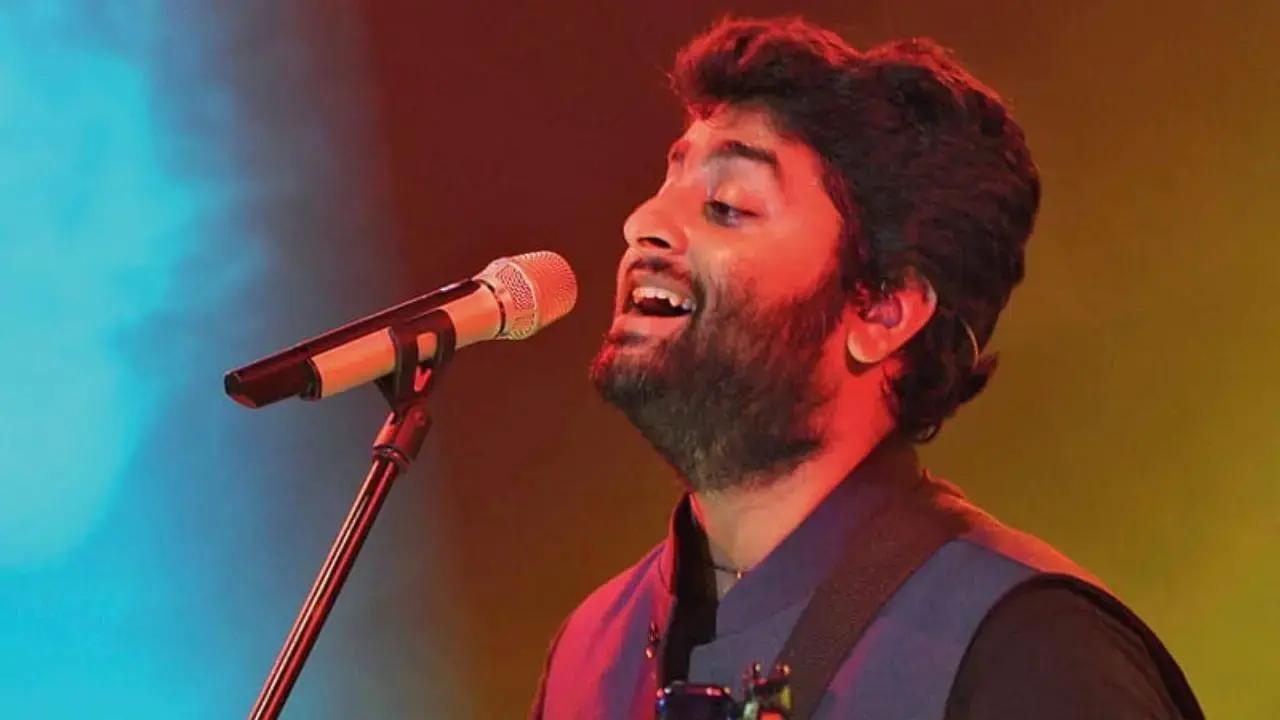
On an ordinary Tuesday, the usual tranquility of Jiaganj, perched on the banks of the Bhagirathi river in Murshidabad district, was punctuated by the presence of one of India’s most beloved voices, Arijit Singh. The air hummed with anticipation not because of an impromptu concert, but as the local son and his wife, Koel Roy, arrived to partake in the democratic process, casting their vote in the Lok Sabha Election 2024.
The scene simmered with a mild excitement as the multi-award-winning playback singer, known for lending his soulful voice to hit songs like ‘Chahun Main Ya Naa,’ arrived in a fashion that echoed the modesty of his upbringing. Dressed casually in a tee and pants, Arijit rode his scooter to the GSFP School at Jiaganj, the designated polling station, accompanied by his wife clad in a simple salwar-kameez, riding pillion with the grace of any other townsperson. They both exuded the air of citizens first and celebrities second.
Their arrival transformed the narrow alley leading up to the polling booth into a corridor of admiration. A gaggle of local residents, who hold the couple in high renown, encircled them, attempting to capture snapshots and snippets of their voting pilgrimage, etching it into the collective memory of the locale. Despite the attention, Arijit and Koel stood patiently in line, waiting for their turn as any other electorate.
The act of voting, often a mundane tick on a citizen’s checklist, is elevated to an event worthy of note when performed by someone who garners as much public attention as Arijit Singh. His presence underscored the significance of every single vote, a poignant reminder of the powerful equalizing force of democracy—where every individual, irrespective of their societal stature, has an equal say in determining the future of their country.
After fulfilling his democratic right and duty, Arijit lifted his index finger, now marked with the indelible ink indicative of his participation, reinforcing the message that every voice counts, every choice resonates through the chambers of governance.
Arijit’s story is one etched with the quintessential narrative of a small-town boy making it big. Raised in the very streets of Jiaganj where he now votes, he embarked on his journey to stardom after his discovery on the reality show ‘Fame Gurukul’ in 2005. Since then, his voice has enthralled millions, his songs have charted the course of countless playlists, and at 37, he stands at the pinnacle of his profession, often hailed as the pre-eminent voice of his generation.
What remains unaltered, though, is Arijit’s connection to Jiaganj—a bond manifested through every step he took towards the polling booth and with every nod of acknowledgment to the locals who look up to him. Such moments reaffirm that fame can coexist with humility and that some roots can never be disentangled, no matter the distance or the heights scaled.
This narrative, chronicled with keen interest and reported with due diligence, holds within it the shared experiences of a community, a singer, and a nation engaging in an exercise of rights and freedoms. It is a story sourced from the very fabric of society, delivered to inform and remind that democracies thrive on participation, that they echo with the collective choices of their people, and that each ink-stained finger contributes to the chorus that decides the course of the nation.
In such a light, Arijit Singh’s act transcended the boundaries of personal civic duty, morphing into a powerful testament to the beauty of democratic engagement.
As is the responsibility with the dissemination of such reports, it must be noted that this narrative has been crafted with information retrieved from third-party syndicated feeds and agencies. Accountability for the dependability and authenticity of the content within cannot be ascribed to any one outlet. The management and administrators reserve the unfettered right to modify or expunge content without prior notice, and solely at their discretion, as indicated by the terms and conditions of reportage and publication.












